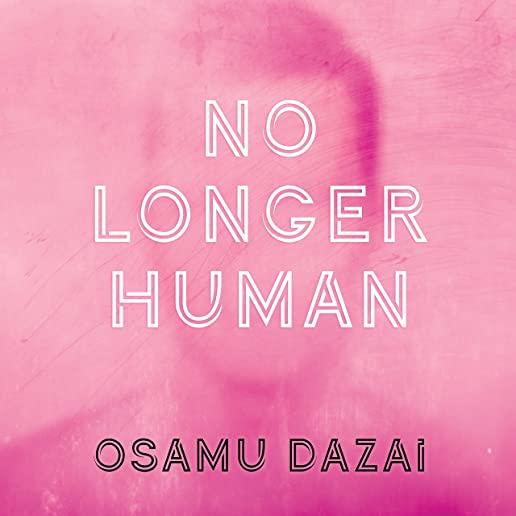
description
0Una extraordinaria novela basada en la vida de María Casares, la actriz española de teatro que triunfó en el exilio en Francia: su historia familiar, su carrera artística y su relación con Albert Camus, con el que vivió una apasionada historia de amor.
Cuántas veces puede nacer una persona en su vida? 1990. Airas, un joven periodista gallego, recibe su mayor encargo hasta el momento: cubrir la entrega del Gran Premio Nacional de Teatro de Francia a la actriz María Casares. Con más de sesenta años, María, todavía en activo, vive en una gran casa en la campiña francesa, junto a los fantasmas de sus dos grandes amores: Albert Camus, su amante, y André Schlesser «Dadé , su mejor amigo y posterior marido. El acento gallego de Airas y su enorme parecido con Camus llevarán a María a revivir sentimientos que creía olvidados y a reconstruir su historia personal y profesional, desde que abandonó España tras el estallido de la Guerra Civil con catorce años por ser hija de Casares Quiroga hasta que Francia la convirtió en una de las figuras más influyentes de su teatro. Una vida irrepetible marcada por el mar, el exilio, el amor y la soledad. Sensible, nostálgica y exquisitamente narrada, esta novela explora la intimidad de la artista que llevó el acento gallego a lo más alto del arte europeo. En Todas las horas del día, Clara Fuertes recupera y reivindica la voz de una mujer polifacética que convivió con los grandes nombres de su época. ENGLISH DESCRIPTION An extraordinary novel based on the life of María Casares, Spanish theater actress who triumphed in exile in France: her family history, her artistic career, and her relationship with Albert Camus, with whom she had a passionate love story. How many times can a person be born again in a lifetime? 1990. Airas, a young Galician journalist, receives his biggest assignment to date: to cover the story in which actress María Casares is awarded the French National Theater Grand Prize. Even at over sixty years old, María is still very active; she lives in a large house in the French countryside, along with the ghosts of her two great loves: Albert Camus, her lover, and André Schlesser Dadé, her best friend who later became her husband. Airas's Galician accent and his enormous similarity to Camus will lead María to revive feelings that she thought had been long forgotten, and to rebuild her personal and professional story, starting from when she left Spain after the outbreak of the Civil War at the age of fourteen as the daughter of Casares Quiroga, until becoming one of France's the most influential theatrical figures. Hers was a unique life marked by the sea, exile, love, and loneliness. Sensitive, nostalgic, and exquisitely narrated, this novel explores the intimacy of the artist who brought the Galician accent to the top of the European art scene. In All Hours of the Day, Clara Fuertes recovers and vindicates the voice of a versatile woman whose partners were the biggest names of that time.
Cuántas veces puede nacer una persona en su vida? 1990. Airas, un joven periodista gallego, recibe su mayor encargo hasta el momento: cubrir la entrega del Gran Premio Nacional de Teatro de Francia a la actriz María Casares. Con más de sesenta años, María, todavía en activo, vive en una gran casa en la campiña francesa, junto a los fantasmas de sus dos grandes amores: Albert Camus, su amante, y André Schlesser «Dadé , su mejor amigo y posterior marido. El acento gallego de Airas y su enorme parecido con Camus llevarán a María a revivir sentimientos que creía olvidados y a reconstruir su historia personal y profesional, desde que abandonó España tras el estallido de la Guerra Civil con catorce años por ser hija de Casares Quiroga hasta que Francia la convirtió en una de las figuras más influyentes de su teatro. Una vida irrepetible marcada por el mar, el exilio, el amor y la soledad. Sensible, nostálgica y exquisitamente narrada, esta novela explora la intimidad de la artista que llevó el acento gallego a lo más alto del arte europeo. En Todas las horas del día, Clara Fuertes recupera y reivindica la voz de una mujer polifacética que convivió con los grandes nombres de su época. ENGLISH DESCRIPTION An extraordinary novel based on the life of María Casares, Spanish theater actress who triumphed in exile in France: her family history, her artistic career, and her relationship with Albert Camus, with whom she had a passionate love story. How many times can a person be born again in a lifetime? 1990. Airas, a young Galician journalist, receives his biggest assignment to date: to cover the story in which actress María Casares is awarded the French National Theater Grand Prize. Even at over sixty years old, María is still very active; she lives in a large house in the French countryside, along with the ghosts of her two great loves: Albert Camus, her lover, and André Schlesser Dadé, her best friend who later became her husband. Airas's Galician accent and his enormous similarity to Camus will lead María to revive feelings that she thought had been long forgotten, and to rebuild her personal and professional story, starting from when she left Spain after the outbreak of the Civil War at the age of fourteen as the daughter of Casares Quiroga, until becoming one of France's the most influential theatrical figures. Hers was a unique life marked by the sea, exile, love, and loneliness. Sensitive, nostalgic, and exquisitely narrated, this novel explores the intimacy of the artist who brought the Galician accent to the top of the European art scene. In All Hours of the Day, Clara Fuertes recovers and vindicates the voice of a versatile woman whose partners were the biggest names of that time.
member goods
No member items were found under this heading.
listens & views

SERGEI NAKARIAKOV: MUSIC FOR TRUMPET ...
by HAYDN / PHILHARMONIA ORCH / NAKARIAKOV
COMPACT DISCout of stock
$21.99
Return Policy
All sales are final
Shipping
No special shipping considerations available.
Shipping fees determined at checkout.






